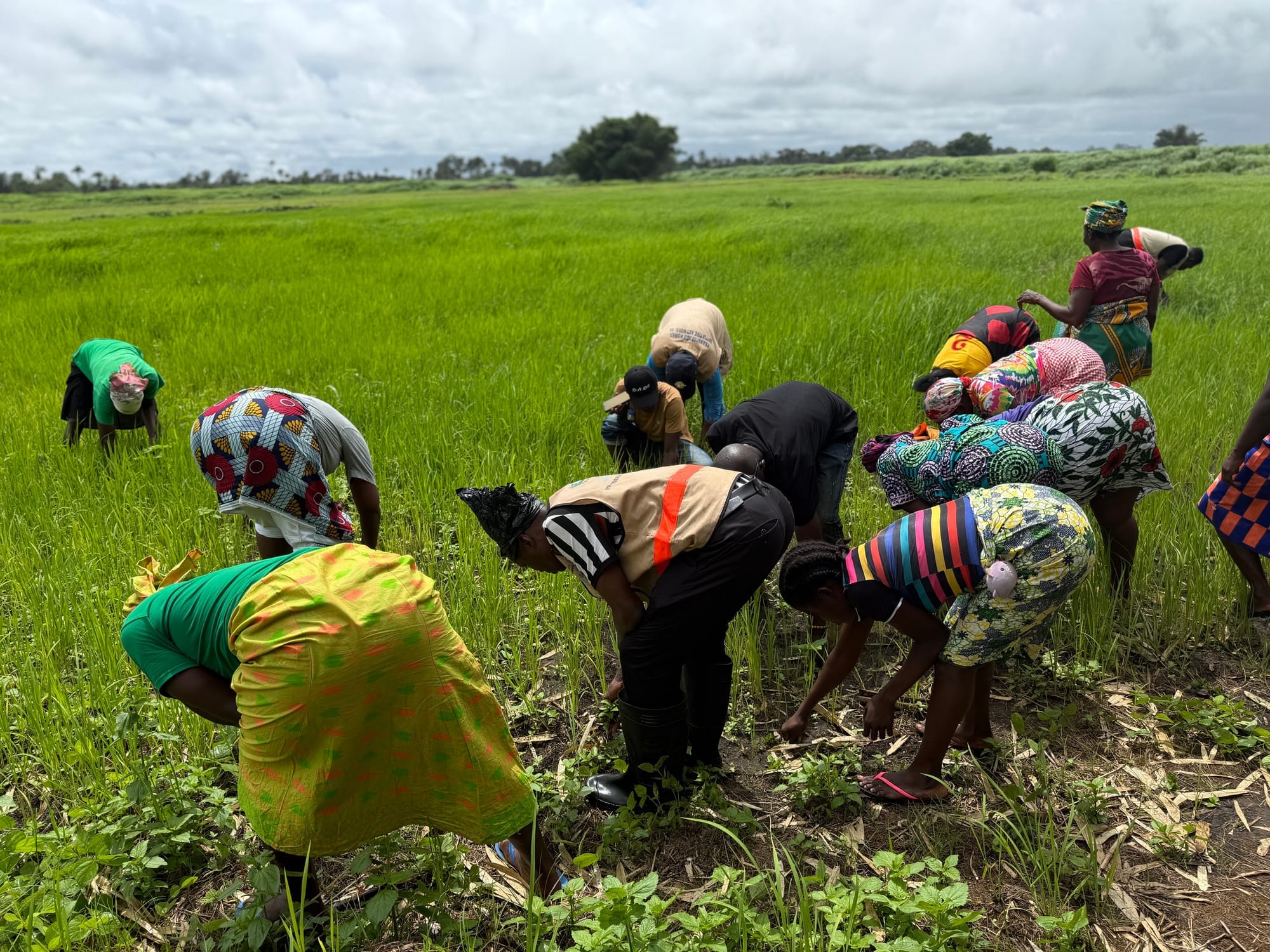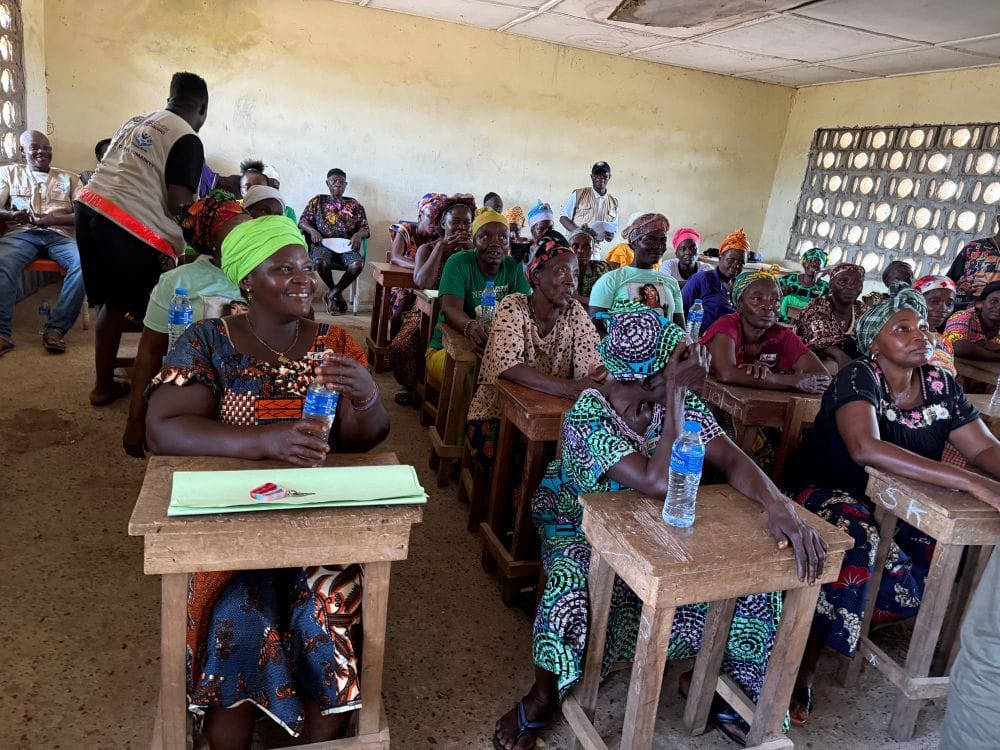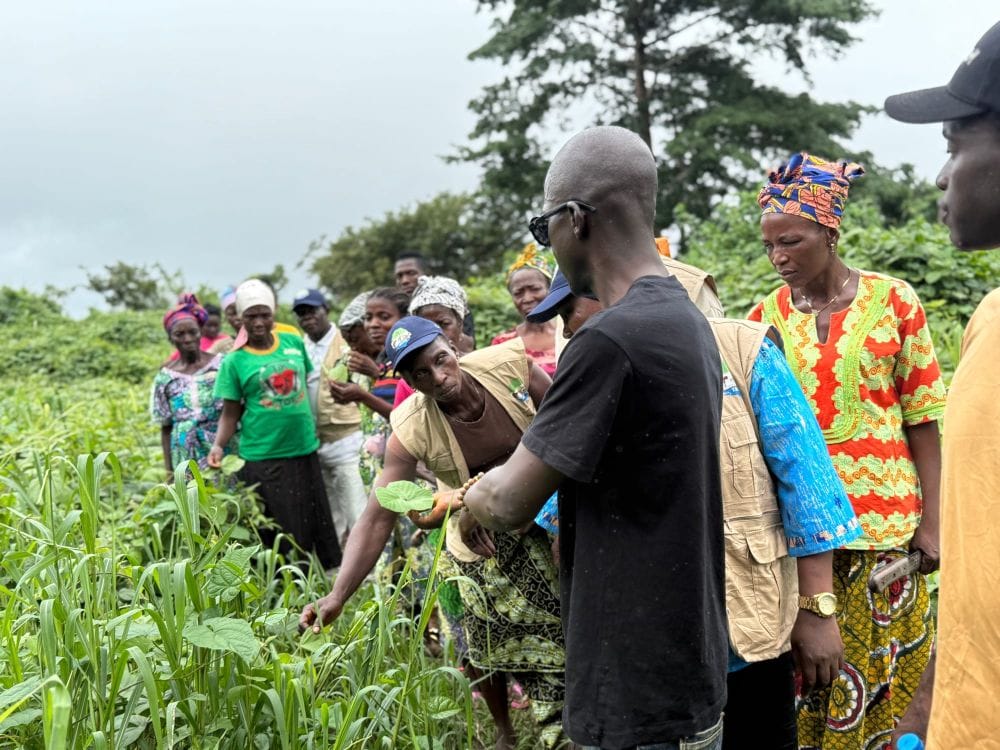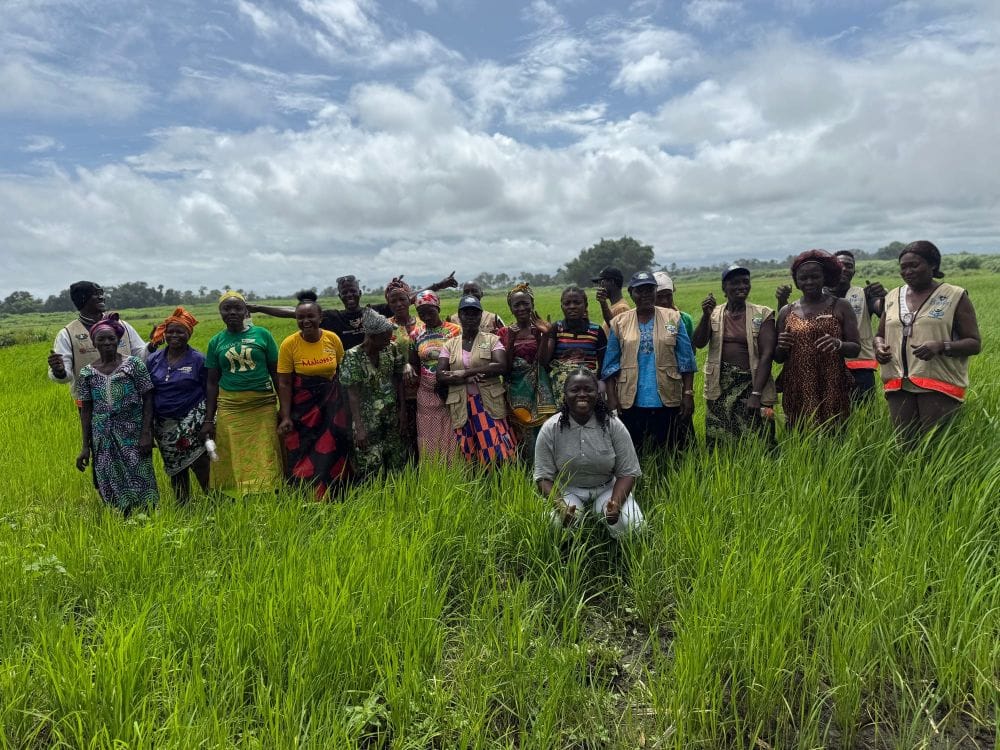In the farming communities of Faabu and Juring Lathu in Sierra Leone, a new chapter is beginning. For generations, farmers have relied on traditional methods passed down through their families. Now, a collaborative effort between the Tzu Chi Foundation and the Lanyi Foundation is introducing new skills and knowledge, aiming to build a more secure and sustainable future. On July 2 and 5, 2025, women from these villages, including members of the Transformed Women Initiative Network (TWIN), gathered for a two-day training on Good Agricultural Practices, a key part of an ongoing Agriculture Development Project designed to foster resilience and increase productivity.

A Foundation of Respect and Shared Goals
The training began not with a lecture, but with a moment of quiet, personal prayer, allowing each participant to reflect according to their own faith. Margaret Bassie, a Tzu Chi representative in Sierra Leone, extended warm greetings from Dharma Master Cheng Yen in Taiwan, thanking the farmers for their dedication.
The session was designed to be interactive and centered on the farmers' needs. Ishmael Alfred Charles of Caritas Freetown, a partner organization, encouraged an open dialogue. "What are your expectations for this training?" he asked. The women shared their hopes: to learn innovative farming practices, effective planting techniques, and better harvesting methods. They established their own ground rules for the sessions, fostering an environment of mutual respect and focused learning. This collaborative start ensured the training would directly address the challenges they face every day.

From Theory to Field: A Holistic Approach
The program combined classroom instruction with hands-on practice. After learning the theories behind modern agriculture, the women moved to the fields—the swampy farms of Faabu and the bolie land in Juring Lathu—to apply their new knowledge. The curriculum was comprehensive, covering everything from soil preparation and testing to selecting high-yield, disease-resistant seeds.
Facilitators Joshua Conteh and Mohamed Conteh guided the participants through crucial topics like water management, balanced nutrient application, and Integrated Pest Management (IPM) to protect their crops. A significant focus was placed on organic and sustainable methods, such as no-till farming and using natural alternatives to chemical fertilizers, which are not only better for the environment but also more affordable for small-scale farmers. The training also included sessions on market access and record-keeping, equipping the women with the economic skills needed to turn their hard work into a stable income.

To ensure the knowledge spreads throughout the community, a cascading training model was used. The initial group of trainees is expected to share what they have learned with their neighbors, creating a ripple effect of empowerment and improvement.
Voices of a New Beginning
The impact of the training was immediately felt by the participants, who saw it as a departure from past efforts that had yielded little benefit. Zainab Conteh, a 36-year-old mother of six, expressed her optimism. "I am happy to be part of this project because in this village, a project came before, and it did not benefit us. This one will benefit us, as we are seeing it already," she said. "We are hopeful, we are happy that they are providing us food, which was never done before. We are hopeful and excited."
For Mariama Massaquoi, a 42-year-old widow, the training offered a path to self-sufficiency. "For years, we farmed the way our parents did, with little knowledge of soil preparation, proper planting, or how to protect our crops," she shared. "This training has opened my eyes to new and better ways. I was especially touched by the emphasis on sustainability and record-keeping. It has given me hope that my small farm can now feed my children and also bring income. I feel empowered to share this knowledge with my fellow women farmers, so together, we can change our story."
As the training concluded, the atmosphere was filled with a renewed sense of purpose. Joshua Hindolo Vandy, the Programs Manager at Lanyi Foundation, thanked the participants for their eagerness to learn and the Tzu Chi Foundation for its partnership. "Together, we are planting seeds of hope and resilience," he said. "Let us continue to work hand in hand to achieve sustainable and transformative agricultural development across our nation." For these women, the journey is just beginning, but they now possess the tools and confidence to cultivate a brighter, more food-secure future for their families and communities.






